What can be done about your expensive Pepco bill?
Financial assistance, energy audits, and avoiding third-party suppliers can help.
“If someone’s always coming at you, it kind of bonds you together a bit – and you’re seeing that right now.”

Keya Chatterjee’s week started in the early hours of Monday morning when she gathered outside the Office of Personnel Management downtown with a small group of activists, all with the same goal: stop Elon Musk from what they believed was an unprecedented takeover of the U.S. government.
“They want us to feel fear, they want us to feel chaos, and they want us to feel unbalanced – and instead we are going to prioritize joy,” Chatterjee says. “We’re going to take up space, because this is our home, and we're going to organize so we have enough people that they understand that they really, really should not be messing with us.”
OPM is where Chatterjee first interviewed for her federal job some two decades ago. While she’s since left the federal workforce, moving into local and national activism on climate change and other issues, she says the attacks feel personal – not just as a former government employee, but as a longtime District resident.
“There's just so many federal workers in D.C. who have been bullied and insulted and put on administrative leave – many of whom have shown incredible courage in the face of that by standing up to illegal orders,” she says.
She’s helped organize the protests every morning this week with a network of individuals and collectives calling themselves the Fork Off Coalition, a name Chatterjee says is a reference to Musk’s now infamous “fork in the road memo.” The email, sent to federal workers, outlined an offer that aimed to incentivize employees to resign as part of ongoing efforts to dramatically shrink the civil service (an invitation that expires tonight).
Concurrent protests sprung up across the city throughout the week, gaining momentum as news of Musk's actions escalated. On Tuesday, over a thousand people rallied outside the Treasury Department following reports that affiliates of his Department of Government Efficiency (DOGE) had potentially accessed bank account information and the payment system responsible for disbursing things like social security benefits and tax refunds. Following news of his intention to dismantle the American foreign aid agency USAID, large crowds gathered outside its headquarters and the U.S. Capitol. Further protests sprung up outside the Department of Labor when unions got word that workers had been ordered to comply with DOGE requests.
We spoke with Chatterjee, now the Executive Director of Free DC, an organization launched following the re-election of President Donald Trump, about the protests this week, what the administration means for D.C., and how residents who are feeling overwhelmed can better navigate the weeks ahead.
This interview has been edited for length and clarity. It's accompanied by photos from local photographer Ezra Deutsch-Feldman, who attended this week's protests.
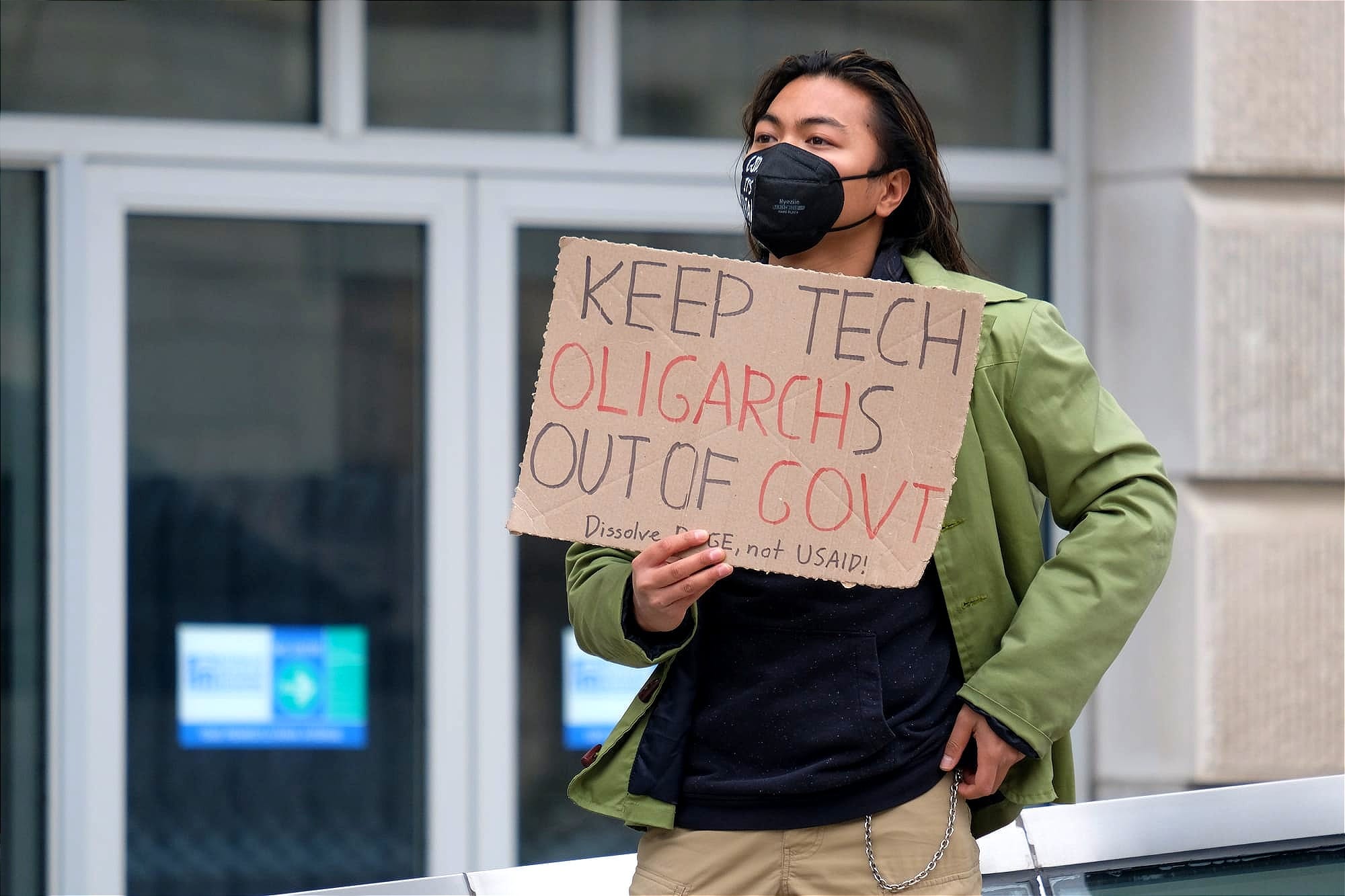
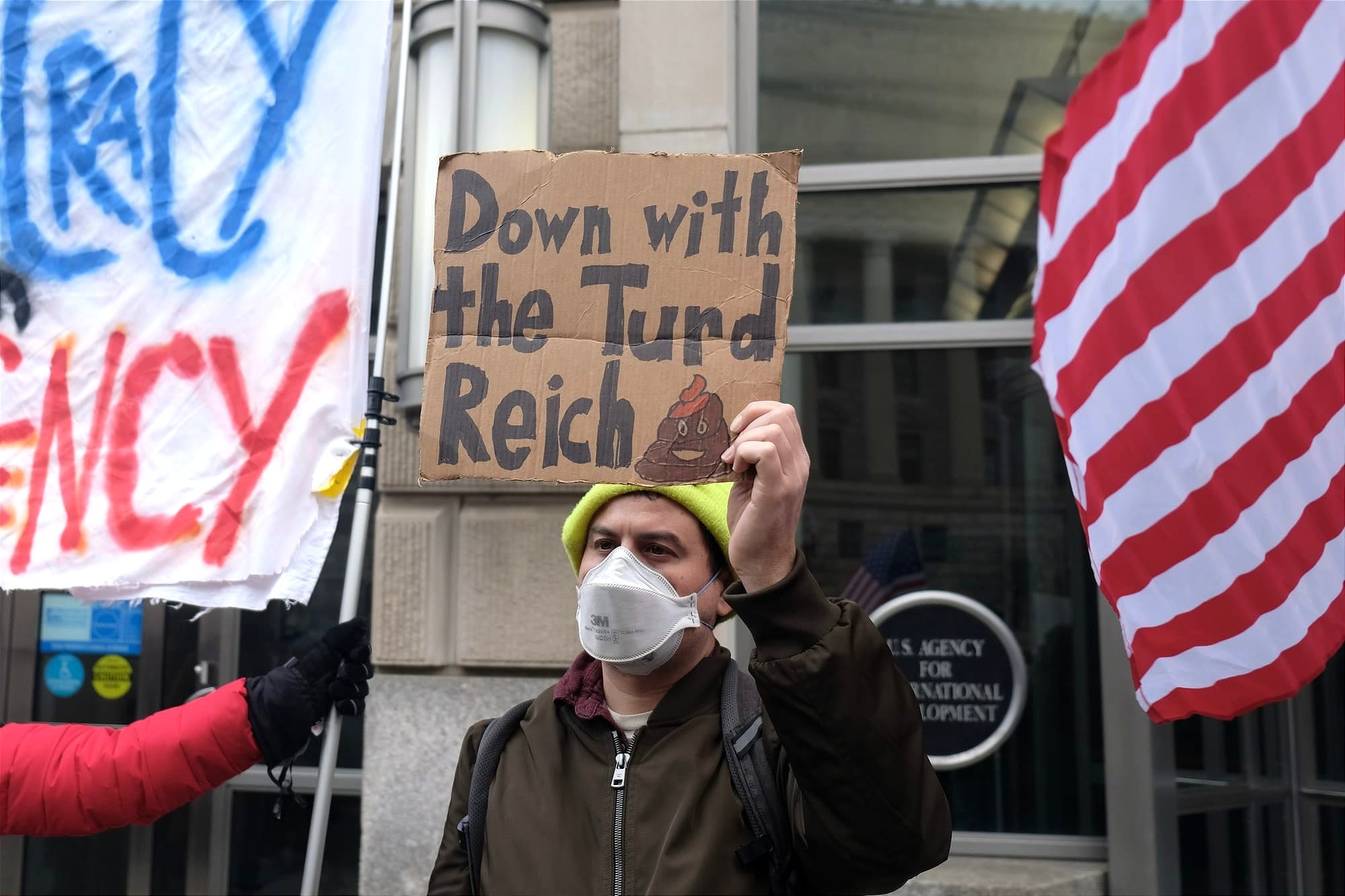
Protestors rallied outside of USAID headquarters on Monday following reports that the Trump Administration may be shuttering the agency. (Ezra Deutsch-Feldman)
What has this week been like for you and your fellow organizers at Free D.C.?
We’re working on building neighborhood-up organizing, so rapid response mode is not the kind of situation we want to be in. But when you’re watching an administrative coup and federal workers being attacked with pretty violent language, we felt like we had to protect our people.
We launched FreeDC on January 18 and have been very, very busy since then – we’ve basically had an event, a training, some kind of session practically every night since the inauguration.
We’ve studied anti-authoritarian movements all over the world, and we understand that this is going to take a lot more people and a lot more organization of those people than we have now. Our goal is to create a joyful movement made up of 3.5% of D.C.’s population. We have a lot of people we need to recruit to do that, so we’re organizing ward by ward, hosting launch parties and weekly meetings. We’ve also been running orientations every two weeks, switching between in person and online, where we’ve trained about a hundred people at a time.
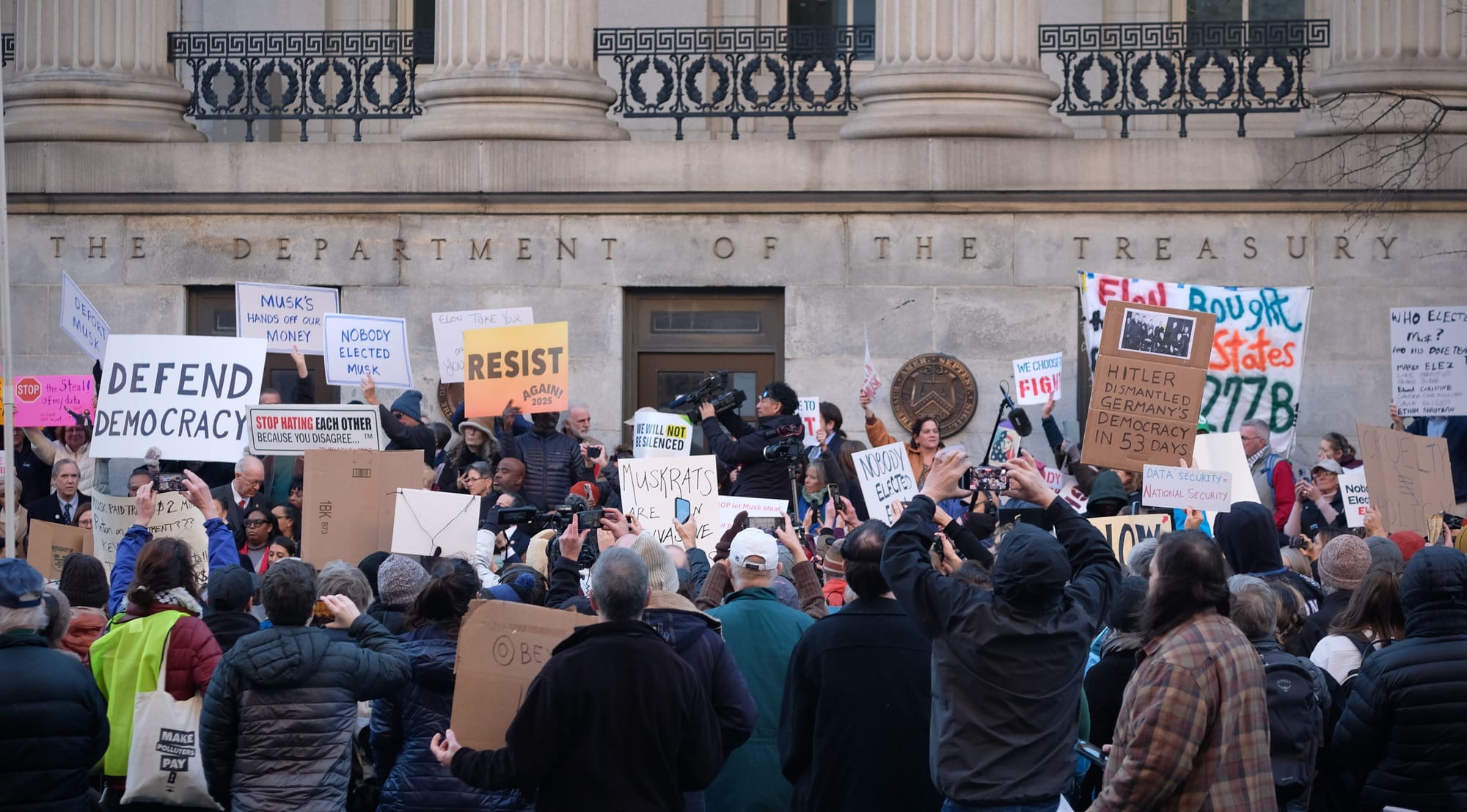
What has been the mood amongst organizers and protestors this week? Are people feeling energized, scared, overwhelmed?
It’s different for different people – people are angry, for sure. I think people are furious, I think they're flabbergasted. I think that some people are really, really tired – and my message to them is: that’s okay and normal and we'll be here once you’re rested.
Whatever circumstance people are in, that's okay. Everyone reacts to things differently, and it’s normal to react to watching a consolidation of power at this scale unfold with all kinds of emotions, and none of them are wrong.
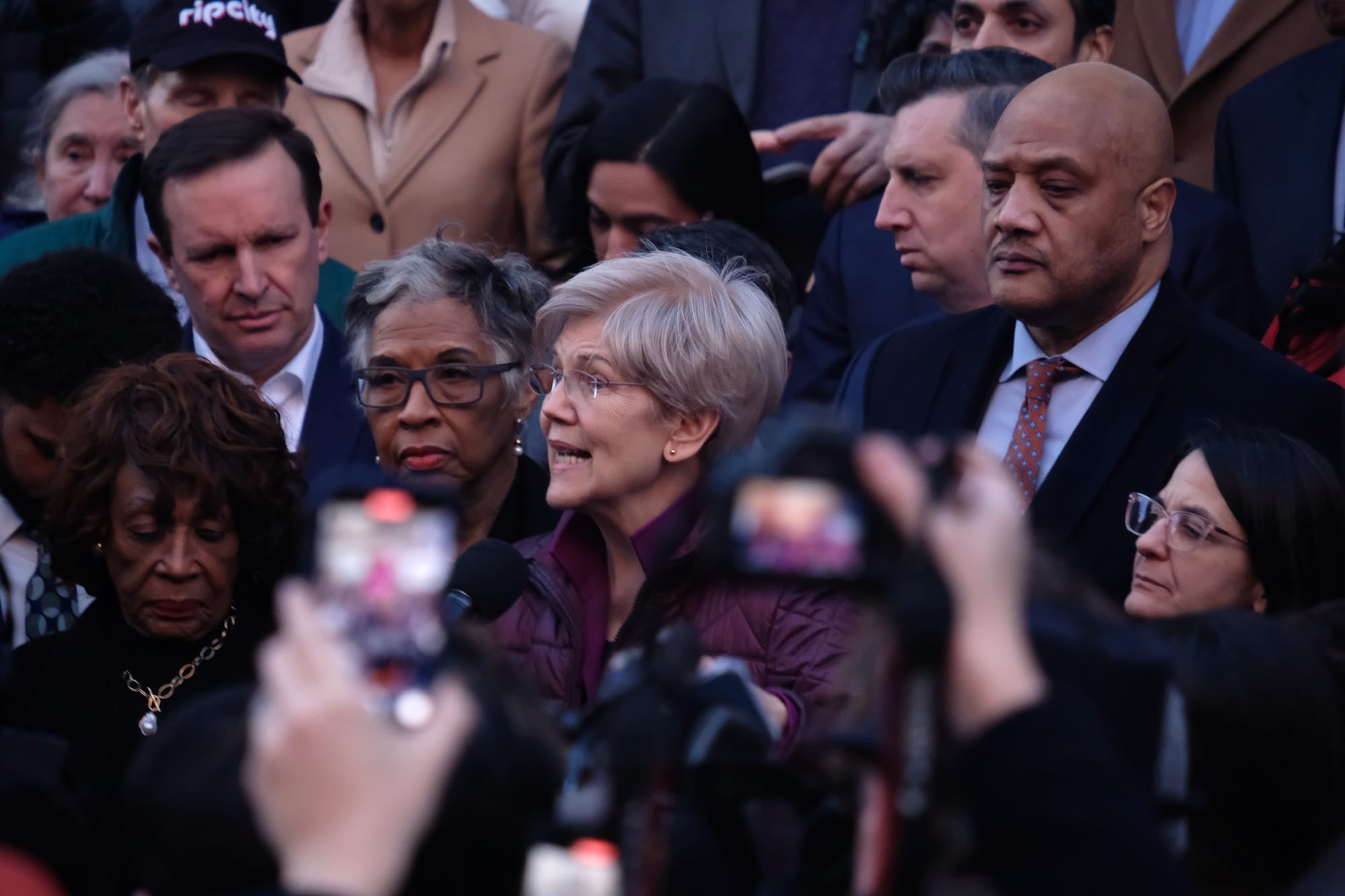
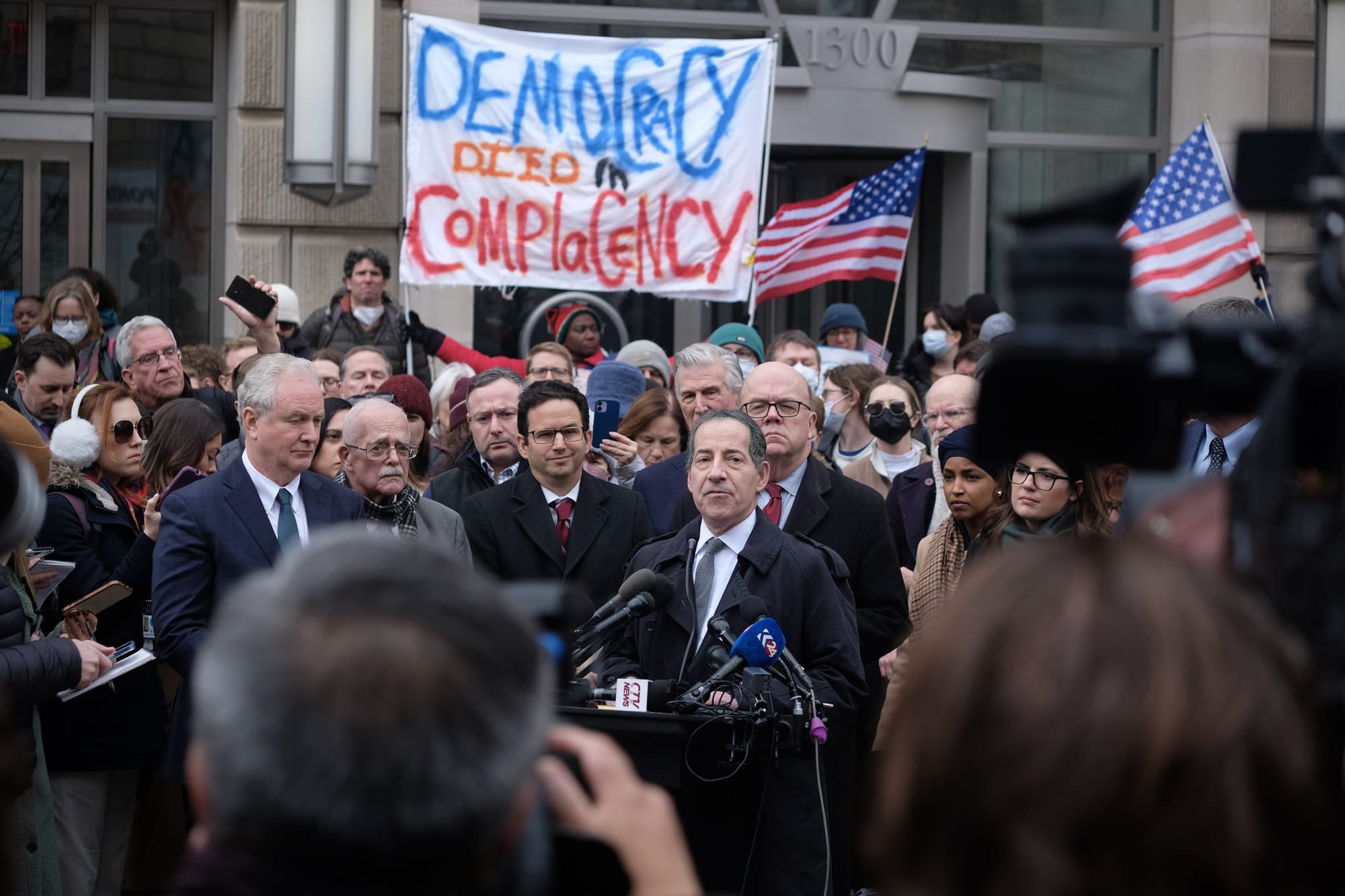
Senator Elizabeth Warren and Congressman Jamie Raskin were among the representatives who spoke to rallygoers this week. (Ezra Deutsch-Feldman)
What are the local impacts of this administration you’re most worried about?
We've already seen attacks on D.C. In addition to how many federal workers there are here, we saw the pardoning of the two police officers involved in the killing of Karon Hylton-Brown; we saw the pardoning of January 6ers; we saw an appointment to U.S. Attorney for D.C. who is not only an election-denier and virulently anti-abortion, but who has been going on social media and threatening and harassing and bullying the people of D.C.
We've already seen Congress introduce a bill that would repeal a law that we passed in D.C. allowing non-citizens to vote, and we aren't going to tolerate this kind of interference in home rule. There were dozens and dozens of bills put forward by the last congress that attacked D.C. – they want to take away the Office of LGBTQ Affairs, they want to ban using abortion funds, they want to ban traffic safety laws, they want to come after Home Rule. Issue by issue they are coming after our values and the laws passed by the people we elected.
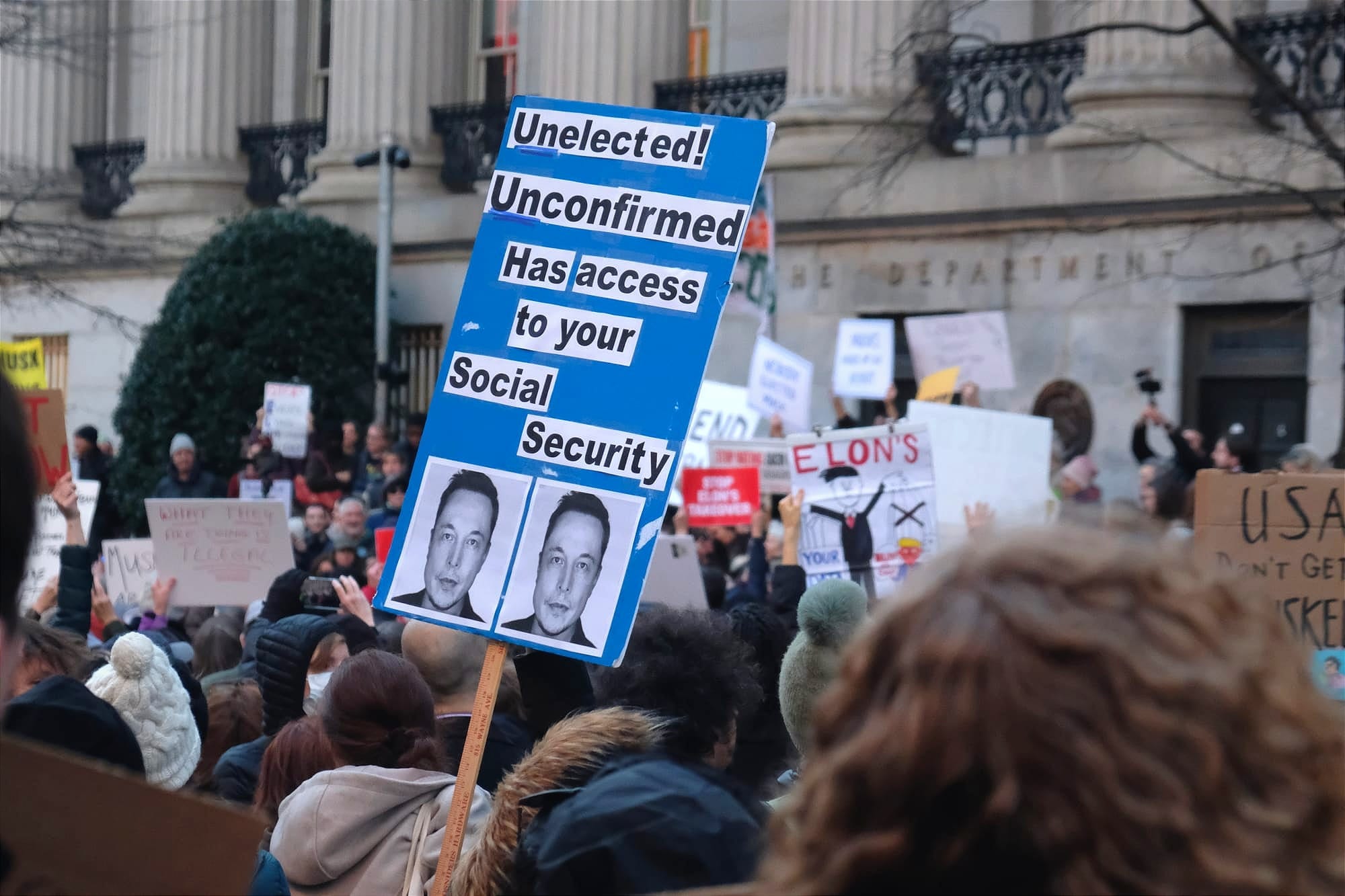
A lot of people are feeling really scared and overwhelmed by the news right now – what’s your advice to them?
My advice is to get trained and to plug into your neighborhood group. No matter what the disaster is – this one happens to be a disaster of democracy – we know that it's neighbors that protect their neighbors. Whether it's a hurricane or a fire or the fact that we have a really cruel set of leaders who are going to allow overreach of ICE and come after federal workers – whatever the threat is, our best protection is our neighbors.
Connecting with them is the best thing you can do to make sure you’re not sucked into the fear. Your neighbors largely feel the same, and are a protective cocoon from us all going into our shells.
Hundreds of people came to our Ward 1 launch party – people brought their instruments and chanted together, a street vendor provided tamales. It was this amazing celebration of the culture of Ward 1. And I can tell you: what people didn't feel in that room was afraid and alone and not ready. There is nothing quite like feeling a part of something bigger.
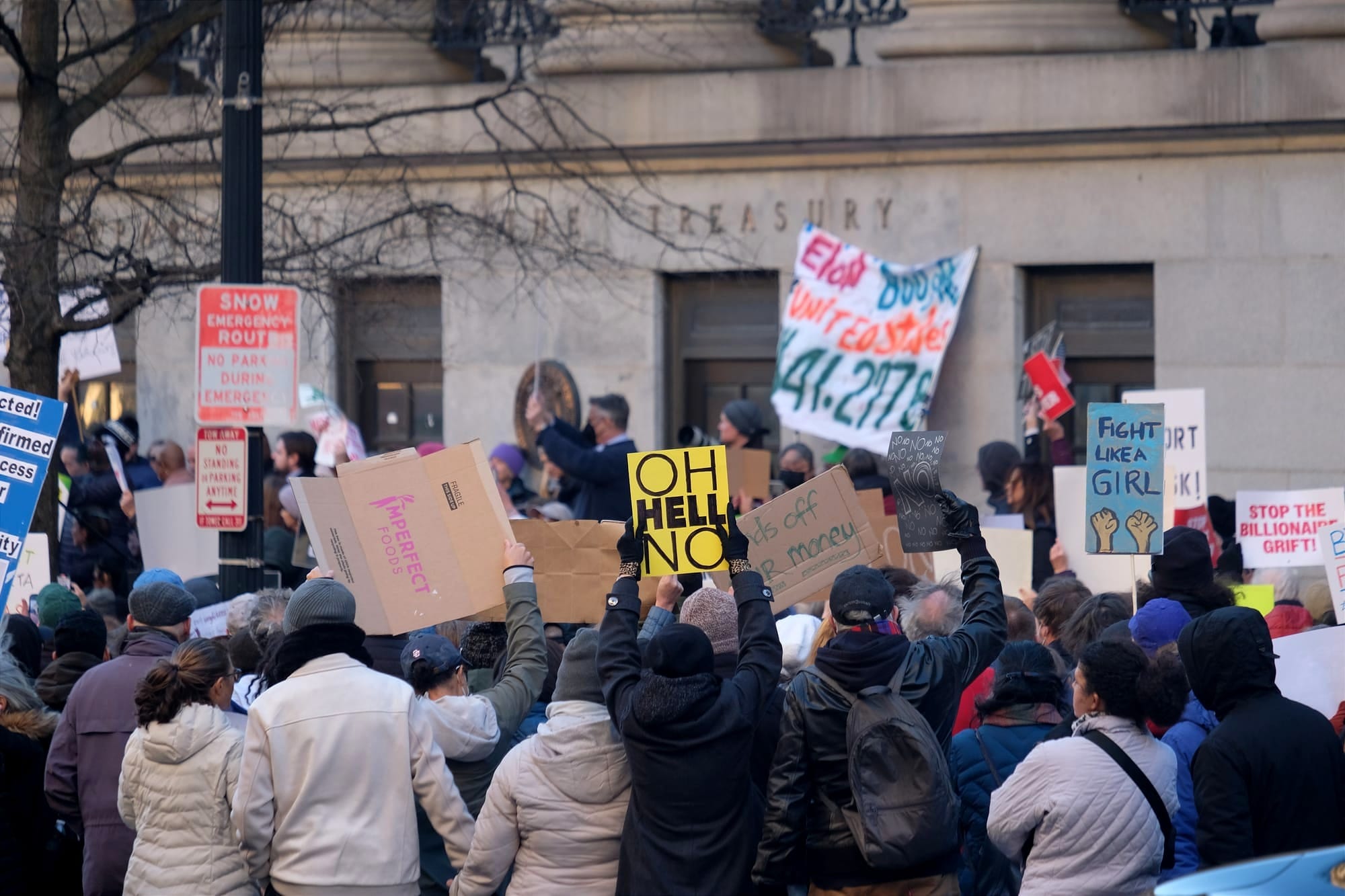
What makes you proud to be a D.C. resident?
We have this really incredible and strong culture – Duke Ellington, Chuck Berry, go-go music. We love to celebrate in D.C., and I love the things we celebrate – the high heel race, the cherry blossoms.
At FreeDC meetings we always ask: what do you love about your neighborhood this week? And people say they love their farmer’s market, they love the outdoor art, they love that they can walk where they need to go, they love the parks, they love that we have two amazing rivers. We are this community that really loves our neighbors and loves where we live.
We are also, frankly, tied together by people maligning us. The D.C. that some members of congress describe is not a city I recognize. When I hear them describe our schools as just a prison pipeline I think about how my son has gone to public schools his whole life, and he’s had the most amazing teachers, experiences, and peers. They have no idea what they're talking about.
There’s some unity in the fact that people come after us – if someone’s always coming at you, it kind of bonds you together a bit – and you’re seeing that right now. The people of D.C. are super competent at fighting back against pretty much anything.
With your help, we pursue stories that hold leaders to account, demystify opaque city and civic processes, and celebrate the idiosyncrasies that make us proud to call D.C. home. Put simply, our mission is to make it easier — and more fun — to live in the District. Our members help keep local news free and independent for all: